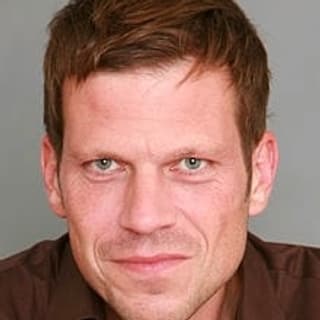Three professional soccer players from the Zurich Grasshoppers Club pose with an Islamist influencer. He moves in radical circles and spreads a so-called toxic image of men. Half a million people follow him on YouTube. Markus Theunert explains why some young men are inspired by such an image of men. The pictures are no longer on Instagram.
SRF News: How did three professional footballers in Switzerland end up being photographed with an Islamist?
Markus Theunert: The message is simple and empowering. Namely: Men are the more powerful gender. Men are allowed to dominate women and even use violence to assert their interests. These statements are in sharp contrast to the goals of equality and women’s emancipation, but that is precisely why they are attractive to insecure men.
Why are certain men insecure about their masculinity?
On the one hand, we still have the traditional imperatives of masculinity. A “real” man – correct in quotation marks – should be tough, assertive, confident and in control of everything in every situation in life. These attributions are increasingly becoming problematic in society, with the keyword being toxic masculinity. As a society, we are increasingly recognizing how dangerous these demands for masculinity are to health and society.
It’s a double message: Be like your father and be the complete opposite of it. This is highly confusing for adult men, especially boys and young men.
This problematization of traditional toxic masculinity leads us to demand that men be the opposite of what they have always been told; So sensitive, respectful, and in no way invasive. And these requirements do not match. Be like your father and be the complete opposite of it. This is a double message. This is highly confusing for adult men, especially boys and young men.
“No place for hate speech”
Why does such a role model also appeal to successful men?
It is a mistake to believe that only marginalized, uneducated men, men in socioeconomically precarious backgrounds, are susceptible to radicalization, to ideas that are based on the inferiority of women and the superiority of men. These patriarchal thoughts permeate our society. Of course, we now have a critical distance from it. But that doesn’t change the fact that they still have a formative influence on our culture, even if they are largely subliminal.
In biology, we find that the idea that there are only men or women – or only males or females in mammals – is simply a construction.
What role do radical religious values play in the image of men that an Islamist influencer conveys?
In the analysis of masculinity-ideological radicalization dynamics, we see a common foundation that is common to all traditionally archaic, toxic ideas of masculinity. Passing on ideas of a natural gender order with men as the dominant part is not something that would apply exclusively to Islam. This is something we find again in many religions – think of the Catholic Church, for example. But this idea of a natural or divine existence of gender is scientifically untenable, that must be said clearly. In biology, we find that the idea that there are only men or women – or only males or females in mammals – is simply a construction.
The interview was conducted by Nicoletta Gueorguiev.
